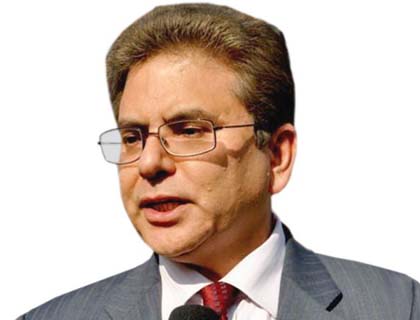KABUL - A hoped-for peace deal ending the war in Afghanistan will likely remain out of reach unless both the United States and the Taliban put more clear, consistent offers on the table, a senior Pakistani diplomat said.
"We don't think all these issues can be solved by fighting. There must be a political process, but the parties need to be serious about it," Mohammad Sadiq, Pakistani ambassador to Afghanistan, told Reuters in an interview.
"There is a lack of clarity on both sides," Sadiq said, referring to the U.S. and Taliban negotiating positions.
The role of Pakistan will be pivotal in U.S. efforts to broker a peace deal between the government of President Hamid Karzai and the militant group.
After more than 10 years of costly NATO efforts failed to defeat the Taliban on the battlefield, Western nations have embraced the goal of a negotiated end to the conflict even as they prepare to withdraw most combat troops by the end of 2014.
But the Obama administration's hopes for quickly setting up negotiations between the Karzai government and the Taliban were dealt a blow in March when the Taliban's reclusive leadership suspended participation in preliminary talks.
U.S. diplomats had hoped their initial meetings with Taliban representatives would set in motion the transfer of former Taliban officials held in Guantanamo Bay military prison to Qatar, the release of a U.S. soldier held by the Taliban, and eventually authentic peace talks among the Afghan parties.
A U.S.-educated diplomat who is a key Pakistani official on peace efforts, Sadiq said that despite deep skepticism among U.S. and Afghan officials - many of whom would accuse Pakistan itself of inconsistency - Pakistan supported the goal of a such a peace deal for Afghanistan.
Pakistan has promised to help bring all Afghan parties to the negotiating table.
Sadiq said the Taliban - whose public statements are famously opaque - must clarify whether their leaders are interested in substantive peace talks, or simply want freedom for former officials in U.S. custody.
That ambiguity, he said, has deepened turmoil within the group, already under pressure after years of battles against foreign troops and NATO strikes against senior members.
The U.S. position, he said, has meanwhile been hobbled by bureaucratic infighting and inconsistent offers to the Taliban regarding the proposed detainee transfer - which have fuelled militant suspicion about U.S. intentions and made Taliban leaders more reluctant to press ahead with talks.
"The Taliban suspicion is that this aims just to split the insurgents," he said.
The U.S. State Department, which leads U.S. efforts to broker a peace deal, denied any inconsistencies, while the Taliban could not be reached for comment.
The U.S. administration says it remains hopeful of restarting talks, but even confidence-building moves are fraught with controversy and risk in the months before elections that Obama hopes will give him a second term.
Pakistan had provided support to the peace process, Sadiq said, allowing certain senior Taliban officials to travel from Pakistan to Qatar, where a political address was tentatively established as part of the now-halted U.S. peace plan.
Yet many within the U.S. and Afghan governments remain deeply suspicious about Pakistan's motives. (Reuters)

